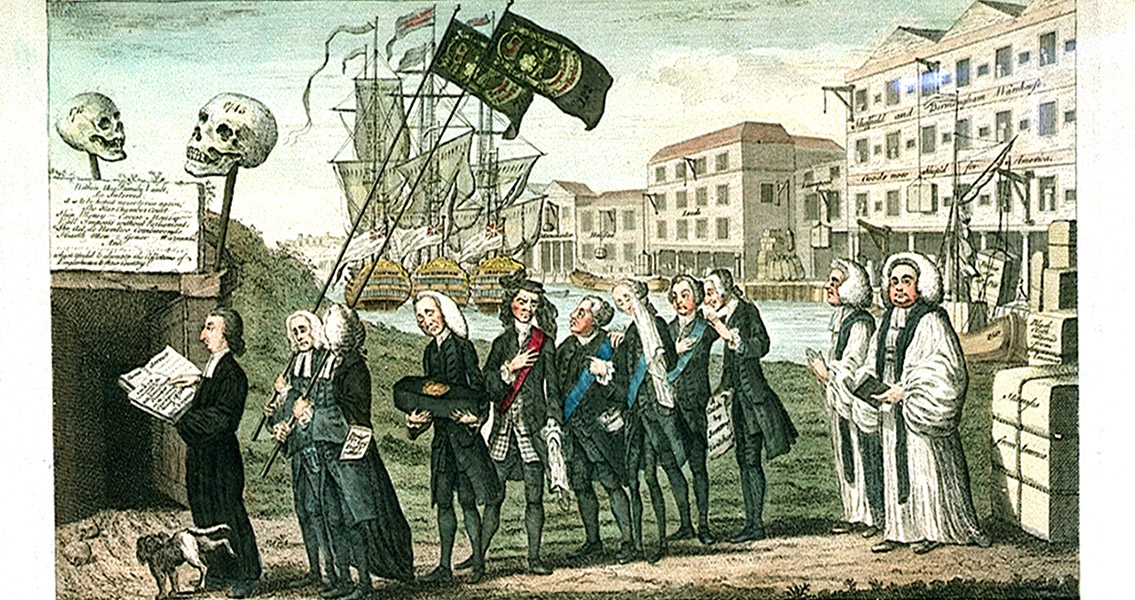<![CDATA[It was a law which would go on to inspire the American Revolution, triggering a backlash from Americans that would push them all the way to independence from the British Empire. On 22nd March, 1765, the British Parliament passed the Stamp Act, levying a tax on every American colonist. The Stamp Act required American colonists to pay a tax on every piece of printed paper they used. Anything from legal documents to playing cards, newspapers to licences were brought under the new taxation. The costs of the tax weren't particularly high, but it was the first time the British government had levied a tax directly at colonists in North America. Its name was a reference to the specially water marked paper that all newspapers and legal documents would have to be printed on to prove the levy had been paid. Protecting the American frontier was given as the reason for the Stamp Act. It was claimed the money the new law raised would go towards paying for 10,000 soldiers to be stationed in the Appalachian Mountains. It set a precedent which worried American colonists. Previously, taxation had only been levied as a means to regulate commerce. The Stamp Act seemed an attempt by the British to exploit the colonies, raising money from the population there without the approval of the colonial legislatures. At the heart of Britain's decision to levy the tax was the Seven Year's War, which had finally come to a close in 1763. The war was a triumph, but a costly one. The British had secured their position in the North American colonies in Canada and the United States, and completely removed any French territorial influence on the continent. However, the long, bloody conflict had saddled the British Empire with tremendous debt. Of particular concern to British politicians was the fact that the deteriorating economy was having its biggest impact on British taxpayers, whose annual tax contributions had risen to 26 shillings. In comparison, colonists in the Americas were only paying between one and one and a half shillings. Seeing as the Americans had been among the biggest beneficiaries of the conflict, the British government decided they should shoulder more of the financial burden. Attempts to recoup the losses started with the Sugar Act of 1764, which placed new duties on sugar and other goods. British Prime Minister George Grenville proposed the Stamp Act shortly after, and it passed through Parliament with no debate in early 1765. Violators of the act would be tried in British vice-admiralty courts, without juries. Although the majority of colonists had no qualms with the British parliament regulating their trade, they took exception to the Stamp Act. The British government argued that even if the colonies didn't have MPs in Parliament, they still enjoyed virtual representation there. The colonists countered that only their own, elected legislative assemblies had the right to levy what they considered a direct, internal tax. Just as significantly, the provision to try offenders without recourse to a jury was viewed by some as a tyrannical attempt to exert imperial authority over the colonies. Dissatisfaction in the colonies slowly smoldered as the implementation date for the new legislation drew closer. Patrick Henry, a colonist in Virginia, submitted resolutions to his colony's assembly, the House of Burgesses, denying Parliament's right to legally tax the colonies. Newspapers picked up on the resolutions and started to reprint them, inflaming resistance to the Stamp Act. In May, Virginia adopted Henry's resolution denying Parliament the right to tax the colonies. By the end of the year, eight other colonial legislatures had adopted similar resolutions. Other Stamp Act opponents took matters into their own hands, with mobs harassing stamp act distributors, intimidating them and threatening them and their property. In port towns, ships carrying stamp papers were turned away, meaning they couldn't deliver their cargo. As stamp distributors started to resign and the materials needed to enforce the law failed to reach their destinations, the Stamp Act became impossible to implement. In 1766, Parliament was left with no choice but to repeal the Stamp Act. In the colonies, it marked the first triumph in a growing movement to escape British control.]]>
Stamp Act Is Passed In Parliament
